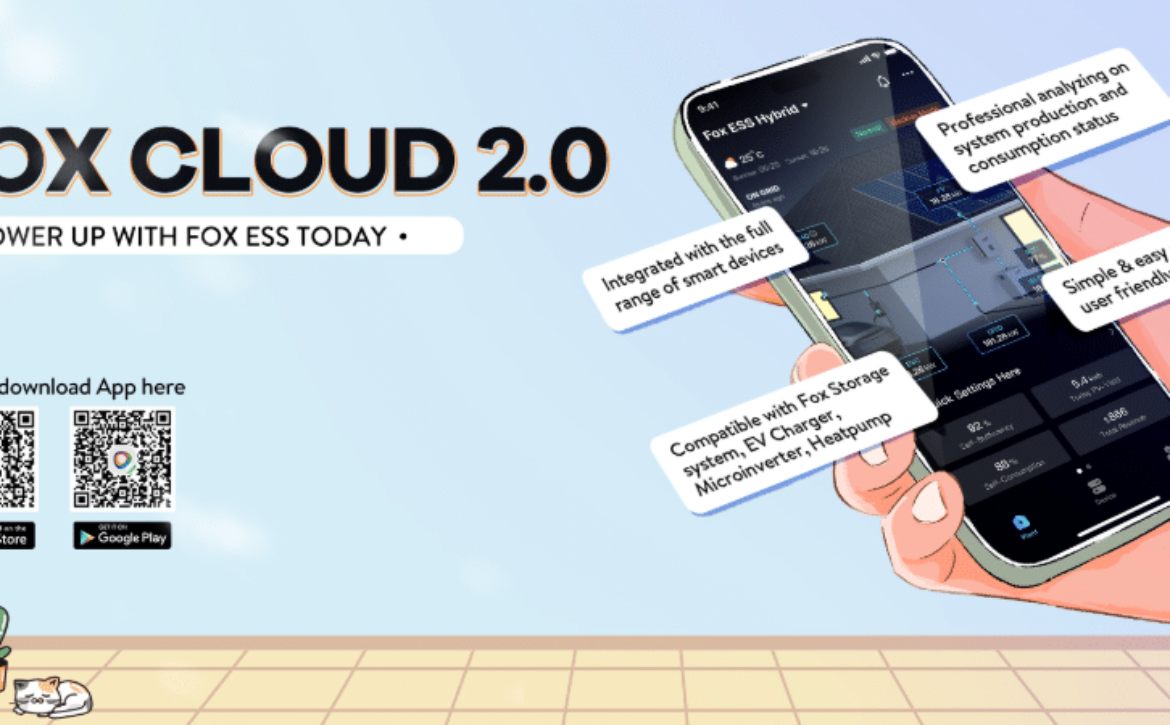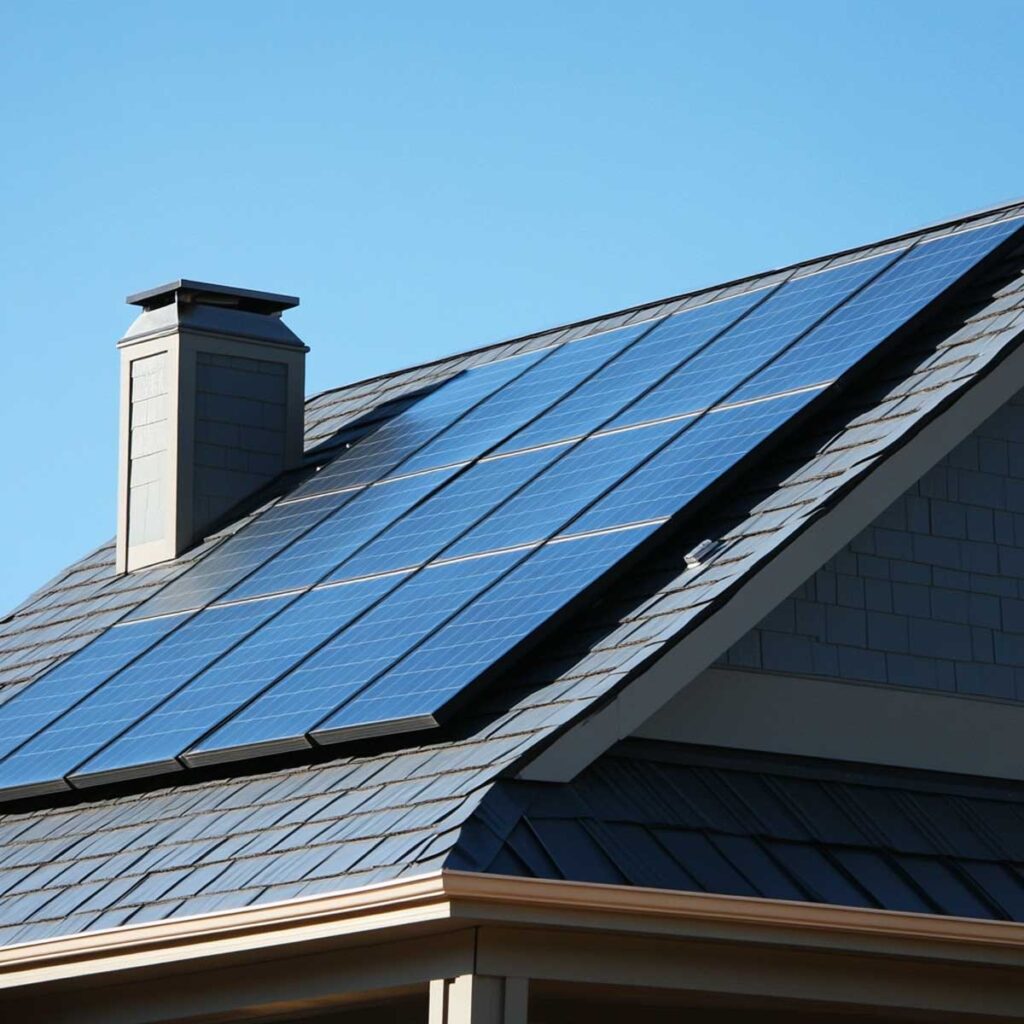Introducing Fox Cloud V2.0: The Future of Energy Management
Are you ready to take full control of your energy systems with just a few taps? Meet Fox Cloud V2.0, the revolutionary energy management app that puts you in charge like never before. Whether you’re a tech enthusiast or just someone looking to monitor your energy usage, Fox Cloud V2.0 is designed with you in mind. Available now on the App Store and Google Play, this app brings simplicity, insight, and smarter energy management straight to your fingertips.
You May Also Like: The Inverex Yukon 5.6 KW Solar Inverter
What Makes Fox Cloud V2.0 Different?
We know the world is full of apps that promise to monitor your solar systems. But Fox Cloud V2.0 isn’t just another energy app; it’s a comprehensive energy solution tailored for residential and commercial customers. If you use FoxESS products, this app is your perfect companion. It’s like having a personal energy assistant who works 24/7 to make sure your solar system is performing at its best.
So, why should you choose Fox Cloud V2.0? Let’s dive into its features and see what makes this app stand out.
1. Real-Time Monitoring
Gone are the days of guessing how much energy your system is generating or consuming. With Fox Cloud V2.0, you get real-time updates on your solar performance, energy consumption, and storage levels. Whether you’re relaxing on the couch or traveling the world, you can monitor your energy system from anywhere. Just open the app and stay connected with live data that keeps you informed every second.
Imagine sipping coffee while you check how much solar energy you’ve generated today—it’s that easy!
2. Advanced Analytics for Deeper Insights
Fox Cloud V2.0 takes energy management to a whole new level with its advanced analytics. Want to know how much energy you saved this month? Or which days your system performed best? The app provides detailed historical reports and analytics to help you identify trends, optimize efficiency, and make smarter decisions about your energy use.
For example, you can:
- Track energy production and consumption over time.
- Identify peak usage hours.
- Compare monthly or yearly performance.
With these insights, you’re not just saving energy; you’re saving money too. It’s like having an energy-saving superpower in your pocket.
You May Also Like: Maximize Efficiency with SolaX 10 KW Three-Phase Inverter
3. Smart Alerts and Notifications
Let’s face it—nobody likes surprises when it comes to energy systems. That’s where smart alerts and notifications come in. Fox Cloud V2.0 keeps you updated on everything you need to know. Whether it’s a low battery warning, a system fault, or a reminder for maintenance, you’ll always be in the loop.
These notifications ensure that small issues don’t turn into big problems. Plus, you can customize alerts to focus on what matters most to you.
4. A User-Friendly Interface That Makes Sense
We know not everyone is a tech expert, and that’s okay! Fox Cloud V2.0 is designed with a user-friendly interface that anyone can navigate. The app is intuitive, clean, and easy to use, so you don’t have to fumble through endless menus.
You can customize your dashboard to display the most important data at a glance. Whether you want to focus on energy production, savings, or system health, you’re in control. It’s perfect for both beginners and seasoned solar enthusiasts.
You May Also Like: The Key Benefits of Solar Energy for Homes
5. Sustainability Insights: Go Green with Confidence
One of the coolest features of Fox Cloud V2.0 is its sustainability insights. You can see how your energy system is reducing your carbon footprint and helping the planet. This feature gives you a clear picture of the environmental impact of your solar energy usage.
Knowing how much you contribute to a cleaner, greener future is incredibly motivating. Every kilowatt counts, and Fox Cloud V2.0 lets you celebrate those eco-friendly wins.
How to Get Started with Fox Cloud V2.0
Getting started is as easy as 1-2-3:
- Download Fox Cloud V2.0 from the App Store or Google Play.
- Log in or set up your account—it only takes a minute.
- Connect your FoxESS system and start monitoring your energy in real time.
That’s it! No complicated setups or confusing steps. Within minutes, you’ll have total control over your energy systems.
You May Also Like: How to Backup a Windows Computer: Windows 10 vs. Windows 11
Why Fox Cloud V2.0 Is a Must-Have
If you’re using solar PV systems, Fox Cloud V2.0 is the missing piece of the puzzle. It brings convenience, control, and confidence to your energy management. With real-time updates, detailed analytics, smart alerts, and sustainability insights, this app is more than just a tool—it’s your energy partner.
By using Fox Cloud V2.0, you can:
- Maximize the performance of your FoxESS systems.
- Save energy and money.
- Monitor and manage your energy usage from anywhere.
- Reduce your carbon footprint and contribute to a greener future.
You May Also Like: What Is Deep Work?
Download Fox Cloud V2.0 Today!
So, what are you waiting for? Download Fox Cloud V2.0 today from the App Store or Google Play and transform the way you manage your energy. Whether you’re a homeowner looking to cut costs or a business owner aiming for efficiency, Fox Cloud V2.0 has you covered.
Take control, stay informed, and embrace a smarter energy future. With Fox Cloud V2.0, managing your energy systems has never been easier—or more fun.
Your energy, your control—anytime, anywhere with Fox Cloud V2.0!










